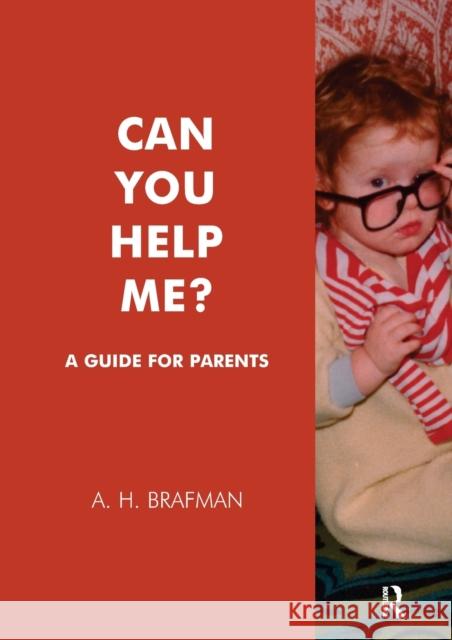Can You Help Me?: A Guide for Parents » książka
Can You Help Me?: A Guide for Parents
ISBN-13: 9781855753112 / Angielski / Miękka / 2004 / 156 str.
Can You Help Me?: A Guide for Parents
ISBN-13: 9781855753112 / Angielski / Miękka / 2004 / 156 str.
(netto: 107,02 VAT: 5%)
Najniższa cena z 30 dni: 100,70
ok. 22 dni roboczych.
Darmowa dostawa!
This book is based on questions that all parents have about their children and that they might want to ask a childcare professional, if they were given the chance. Children's relationships with their parents, their relationship with siblings and outside world are discussed in detail as well as questions on what is normal behaviour and when help should be sought. There are no set rules for raising children but certain situations might be better resolved after learning about other similar cases and hearing a professional's advice.
Drawing from his extensive experience as a child psychoanalyst (and a father), Dr. Brafman offers his thoughts on some most common problems faced when raising children. Questions tackled in the book include:
Is it possible to -baby- your child too much?
How important is -quality time-?
When does -making allowances- for a child become -spoiling- or -inappropriate-?
Discipline -- how to --without physical means.
When is a child -too naughty?-
How to deal with sibling rivalry -- when is it normal? When does it become inappropriate? How to be fair to both kids?
My child has been accused of bullying, what should I do?
How do marital conflicts affect the way parents relate to their child?
-There are so many books available telling parents how to bring up their children that the question arises: why another one? I want to believe that the present text offers two features that put it in a small minority of the books found in the bookstores. First, it tries to focus on situations as perceived by the child, rather than the usual observer's view of the child's behaviour. Second, it offers only a minimal number of answers. Instead, I have tried to discuss each question in such a way as to open up various possible solutions and leaving the final choice to the parents. This is because I have come to believe that finding an answer to a problem is much easier when one understands what relevant issues are involved. Because no two children are completely equal and the circumstances in which parents bring up each child are always changing, I think that an outsider can only give valid advice if he actually meets that particular set of parents and children. My intention, therefore, was to stimulate thought, rather than offer answers that, however plausible, might be of no actual relevance to the problems of the individual reader.- --From the Introduction











